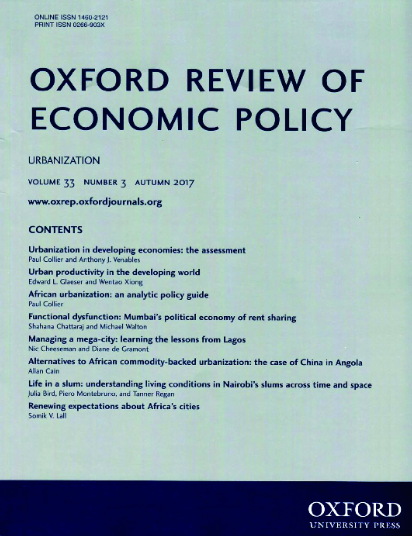有可能为大流行做好准备吗?
IF 1.8
2区 经济学
Q2 ECONOMICS
引用次数: 1
摘要
疫情准备方面的投资效果如何?我们使用了一种全面而详细的大流行准备措施,即约翰斯·霍普金斯健康安全中心(JHU)编制的全球健康安全指数,来衡量对大流行准备的哪些投资减少了感染、死亡、超额死亡,或以其他方式改善或缩短了大流行。我们还研究了个人主义、牺牲意愿或对政府的信任等价值观或态度因素是否影响了疫情的进程,这些因素可能被视为一种文化防疫形式。我们的主要发现是,几乎没有任何形式的疫情准备有助于改善或缩短疫情。与其他国家相比,美国并没有因为个人主义、集体主义、自私或缺乏信任等文化价值观而表现不佳。与特定的疫情投资相比,一般的国家能力似乎是改善疫情表现的少数因素之一。了解最有效的疫情防范形式有助于指导未来的投资。我们的研究结果也可能表明,要么我们没有衡量什么是重要的,要么疫情准备是一项全球公益。本文章由计算机程序翻译,如有差异,请以英文原文为准。
Is it possible to prepare for a pandemic?
How effective were investments in pandemic preparation? We use a comprehensive and detailed measure of pandemic preparedness, the Global Health Security (GHS) Index produced by the Johns Hopkins Center for Health Security (JHU), to measure which investments in pandemic preparedness reduced infections, deaths, excess deaths, or otherwise ameliorated or shortened the pandemic. We also look at whether values or attitudinal factors such as individualism, willingness to sacrifice, or trust in government—which might be considered a form of cultural pandemic preparedness—influenced the course of the pandemic. Our primary finding is that almost no form of pandemic preparedness helped to ameliorate or shorten the pandemic. Compared to other countries, the United States did not perform poorly because of cultural values such as individualism, collectivism, selfishness, or lack of trust. General state capacity, as opposed to specific pandemic investments, is one of the few factors which appears to improve pandemic performance. Understanding the most effective forms of pandemic preparedness can help guide future investments. Our results may also suggest that either we aren’t measuring what is important or that pandemic preparedness is a global public good.
求助全文
通过发布文献求助,成功后即可免费获取论文全文。
去求助
来源期刊

Oxford Review of Economic Policy
ECONOMICS-
CiteScore
12.50
自引率
1.50%
发文量
41
期刊介绍:
The Oxford Review of Economic Policy is a refereed journal which is published quarterly. Each issue concentrates on a current theme in economic policy, with a balance between macro- and microeconomics, and comprises an assessment and a number of articles. It gives a valuable appraisal of economic policies worldwide. While the analysis is challenging and at the forefront of current thinking, articles are presented in non-technical language to make them readily accessible to all readers. The Oxford Review is aimed at a wide audience including government, business and policy-makers, as well as academics and students. It is required reading for those who need to know where research is leading.
 求助内容:
求助内容: 应助结果提醒方式:
应助结果提醒方式:


